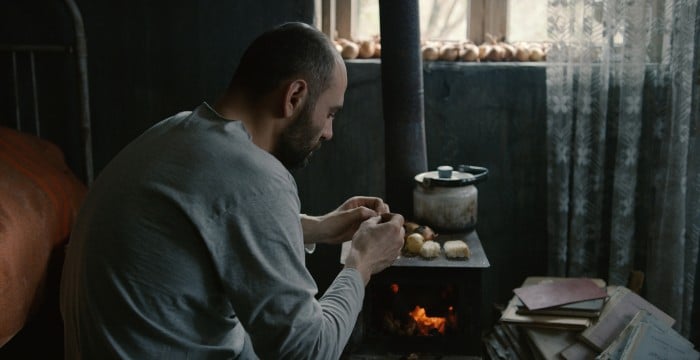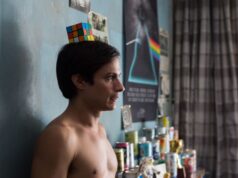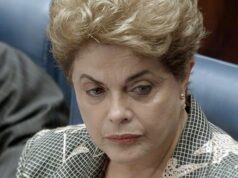Second-day coverage of the 68th Berlin International Film Festival with a review of the Georgian film Horizon (Horizonti)
Horizon (Horizonti)
At the Q&A with cast and crew of Georgian co-production Horizon, director Tinatin Kajrishvili told us she had first come up with the ending of her film and then worked her way backwards to build a story that would lead to what she had in mind. Considering what Horizon turned out to be, I feel this makes complete sense — and when asked by a member of the audience what the ending was supposed to mean, Kajrishvili gave an answer I knew I was going to hear: that not even she was sure, and that it was up to the viewers to decide.
Now, if this might suggest a film that wants to explore ambiguities and the complexity of feelings and decisions, it is simply not the case. Horizon begins when a broken-hearted man named Giorgi (Giorgi Bochorishvili) moves away from the city to a small barren island so he can get away from his collapsing marriage with Ana (Ia Sukhitashvili). As he isolates himself in a cabin by the sea, memories creep in (along with the wintry cold) through flashbacks that let us understand why he went there. Surrounded by strangers and trees, Giorgi is caught between his inability to face his wife’s happiness with someone else and the hardship of being alone.
The guy finds himself completely off his turf among people who spend most of their days drinking and fishing (he doesn’t drink or eat fish), which doesn’t help his misery. Horizon works well in the way it explores his isolation, investing in immersive sounds of nature (and hunting shots) around him. We can hear a timid piano score but only a couple of times. The film also relies on a beautiful cinematography full of dark green and gray tones, and there are many evocative scenes using less light, especially in Giorgi’s cabin. Later on, we see the house covered with snow facing a frozen lake, which is a breathtaking moment in its placidity.
Still, even though we get to learn more about Giorgi as flashbacks tell us how much his wife loves him (in her own way), there is something else besides his obsessive character that prevents us from relating to him. At first, I thought Bochorishvili might not be good enough to convey all the intense emotions that Giorgi must be experiencing. It’s true that the actor doesn’t manage to express his confusion well enough either, but it’s not just that. There’s also a problem with what the film wants to do.
We see that Giorgi is an “old-fashioned guy” — an accurate description that, not surprisingly, encompasses threatening to choke the woman he loves. He refuses the “services” of an eager lady at a hotel, turns down a job to modernize an old building, and carries a delusional kind of romantic hope within. He tries to be open to this whole modern situation and to seeing Ana with another man, but he can’t, even if he wants to start anew and is shown to be an essentially good man who would jump into an icy-cold lake to save someone’s life.
There is a lot of material here for a profound drama, but the actor doesn’t deliver, and the film never manages to develop Giorgi’s relationship with the folks on the island. We are forced to follow his new dull life with those dull people as though this could offer him any sort of possibility, but Horizon takes our investment for granted, which becomes obvious when it tries to make us feel for the fate of an old lady we know nothing about.
As the plot drifts along without a clear direction, it gets harder to care about a film that doesn’t know where it wants to go or what it wants to say, reaching an end that feels like a tragic cop-out. And that’s what makes the last scene — the director’s initial idea — empty and meaningless, as if belonging in another movie.





